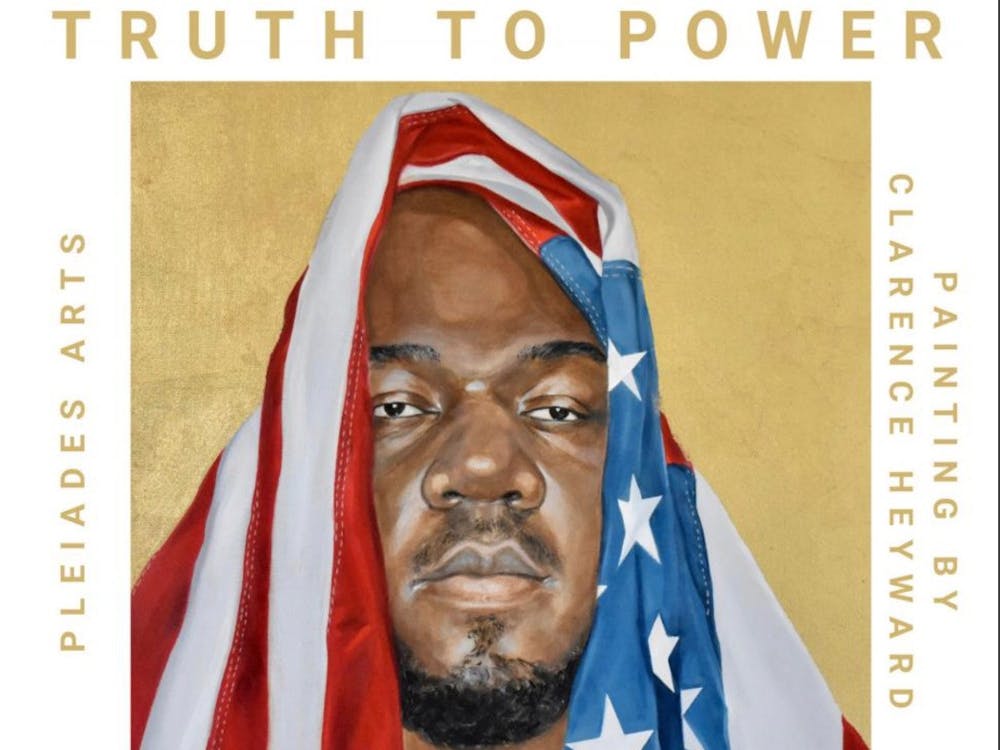To the upbeat sound of Billy Porter’s “Love Yourself”, artists trickled into the now-familiar Zoom room. The inspiring feeling evoked by Porter’s lyrics as people joined the 8th annual “Truth To Power” exhibition artist talk harmonized with the messages encapsulated by the stellar artwork of the virtual gallery.
Hosted by Duke’s Power Plant Gallery at the American Tobacco Campus, the exhibition shifted to a virtual format due to guidelines instituted in response to the COVID-19 pandemic, including an artist talk held Aug. 22 on Zoom. The exhibition, sponsored by Pleiades Arts, pioneered the ever-growing virtual art territory by presenting the artwork through an online interactive catalogue.
The judges for this year's exhibition not only cultivated great admiration through their local contributions to art, but also were representative in capturing the identity of the art pieces that were chosen. Angel Iset Dozier, activist, educator and founder of Be Connected Durham, joined Cornelio Campos, a North Carolina-based artist focused on portraying the harsh circumstances of immigrants in the United States through his unique and vibrant art. These judges assembled a timely collection of artworks that mirrored the feelings of most Americans as they face racial, sanitary and economic fragility.
Even though the talk felt atypical in its online format, the enthusiasm endemic to previous years was still present. Some artists, such as Eliza Salmon with her painting “What Would The World Be Like If Men Could Get Pregnant?”, presented their artwork for the first time, while others returned from previous years.
Artist Natalia Lopes, a newcomer to the exhibition, used her artwork to speak about the current health crisis and the simple — yet often controversial — act of wearing a mask. Her piece “Forget Me Not” is a digital illustration fusing the color of forget-me-not flowers and the emblematic blue of surgical masks. This artwork capitalizes the duality on the vulnerability of front-line workers of the COVID-19 pandemic and the power that masks have in stopping the spread of the virus.
According to Lopes, the piece has transcended to become its own social media campaign through hashtags such as #nomeolvides, which translates to “forget me not” in Spanish.
“It’s definitely inspired me to keep making work through quarantine,” Lopes said during the talk. “I’ve been very humbled by the fact that people have been responding to it in the way that was intended.”
“Stars and Bars” by Clarence Heyward captures a disturbing yet fitting image of a young Black boy gazing at the viewer from behind jail bars. The boy’s chest displays a copy of the 13th Amendment and the background contrasts the boy's grey and black tones with the blinding red, white and blue of the American flag.
Heyward described the piece as “a depiction of innocence”, portraying “how slavery was basically continued and kind of ushered into the system in a new way.” Heyward wants his piece to remind everyone that the prison industrial complex that benefits from free labor is a “new form of slavery”.
This art piece evokes an eerie comparison between Black people and images of immigrant children detained behind bars in ICE detention centers which further resonates inequality and abuse within the system.
Artist Bethany Bash used her piece “Self Portrait as Amy Cooper” as both a way to self-reflect on her own role as a citizen of a burning society and to challenge the audience to do the same. Her artwork illustrates the May 25 incident where Amy Cooper, a white woman, called the police on Black birdwatcher, Christian Cooper and falsely accused him of threatening her in Central Park, but Bash adds an interesting and risky twist.
Instead of portraying Amy Cooper’s face, Bash decided to paint her own face and her own dog into the scenario. This bold move was the result of her self-reflection on her personal position as a white woman.
“We can’t change our internalized racism without recognizing it,” Bash stated.
Working with a similar theme, photographer Tim McGloin captured his entry “Children Speak for Justice” during a May 30 Black Lives Matter demonstration in Raleigh. Having attended many demonstrations throughout his life, he highlighted that this piece captured “probably the most diverse demonstration that we have ever seen in terms of youth, in terms of the communities — African-American, Latino, Latinx, elderly people, young people and children.”
His photograph spotlights children wearing Black Lives Matter face masks holding posters that read “Is my life more valuable than his?” with arrows pointing towards an African-American boy holding a sign with the names of victims of police brutality. In keeping with the theme of social change and equal representation, McGloin took the opportunity to advocate for future inclusion of Native-American artists in next year’s Truth to Power exhibit. “One of the missing communities in the Truth To Power exhibit has been Native-American,” said McGloin. “I think if any community can speak truth to power, it’s them”.
The 30 featured artists independently created messages that summoned multiple problems of social inequality and consequently created an interwoven statement on the current political and social climate of the United States.
“These aren’t random choices,” Renee Leverty, founder and board chair of Pleiades Art said. “These are intentional pieces.”
Get The Chronicle straight to your inbox
Signup for our weekly newsletter. Cancel at any time.

